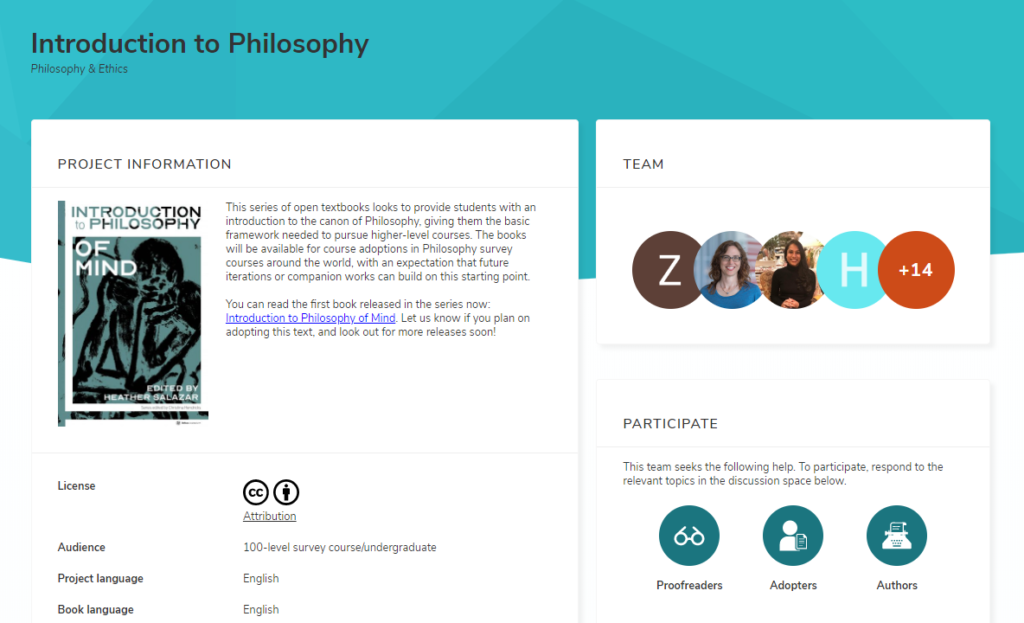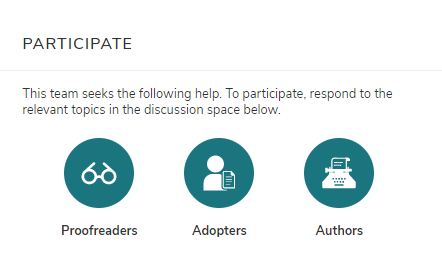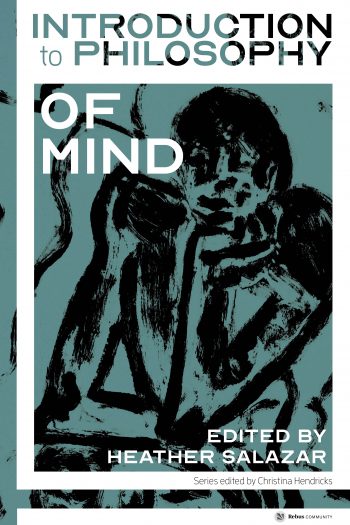This is the second in a series of reports filed by Donna Langille, a practicum student who joined us for the spring of 2019. We’ll be releasing each chapter as a blog post weekly. Find the complete text at Rebus Community Reports.
Introduction to Philosophy is a nine-book series lead by Christina Hedricks. Read the first released book, Philosophy of Mind, edited by Heather Salazar.

Becoming a Ringmaster of Philosophy
Christina Hendricks knows a lot about the complexities of teaching and writing about philosophy. The field comprises myriad branches and threads, multiple schools of thinking and doing, and endless future directions to explore. In the classroom, finding that one, perfect, introductory philosophy textbook is therefore something of a contradiction in terms, given the inherent diversity. Coupled with the existing challenges of outlandish book prices and reading accessibility, such issues suggest that there is a space for creating one’s own open textbook. But what about creating nine of them?
Professor of Teaching in Philosophy at the University of British Columbia, Christina is a powerful voice in the world of open education, championing and advocating for OER since 2012. It was around then that she first started going to workshops and talks about the subject, and quickly became an active part of the movement. Today, she is the Canadian representative to the Creative Commons Global Network Council, and is therefore ever more attuned to the vicissitudes of open licenses and emerging implications.

In her own introduction to philosophy courses, Christina had stopped using a textbook many years ago. Instead, she assigned many original readings (some in the public domain, some available through the library), and did the summary and synthesis work herself. Yet this put a lot of labour back on her own shoulders: textbooks do provide an advantage in that regard, and the time incurred is significant. Nonetheless, having cobbled together a solution that was ‘good enough’, it took some time for the desire to create her own OER to emerge.
Having been advocating for OER in a broad sense, Christina received a fellowship with BCcampus, to work on advocacy and research on open textbooks. It led her to see the value in the way that OER authors can mix and match together different pieces of content—one chapter from here, another from there. It provides the flexibility to create a custom textbook, but without having to reinvent the wheel at every step.
Around that time, Christina met Rebus’s Hugh McGuire, who told her about the community publishing initiative that they were about to launch. Would she be interested in leading one of the selected pilot projects? Having searched for a textbook that would suit her own needs, and ultimately not finding anything geared to a first-year philosophy class, the answer seemed obvious. And thus, in early 2017, the Introduction to Philosophy project was born.

Publishing an open textbook for the first time can be daunting. Yet the high-touch support that Rebus Community’s Zoe Wake Hyde and Apurva Ashok gave to the original pilot projects was extremely helpful, as was the technical infrastructure that the platform offers. Importantly, it was that community aspect that made a difference: many people stepped forward to support the project. When Christina sent out the call for contributors, she received numerous responses from prospective authors and editors. She was both surprised and relieved to see such a large interest. Questions swirled as to how much volunteer time people would be willing to contribute, as well as how many of those volunteers would have the skill and scope to actually write their own chapter. As the number of participants grew, however, the questions were answered. The collaboration would significantly decrease each person’s workload, while also providing a diverse range of insights into different perspectives and teaching styles. This was particularly helpful in the context of a philosophy textbook, given that there are multiple responses to philosophical questions and interpretations of philosophers’ views.
Collaborative authorship has been both one of the book’s biggest strengths, as well as a significant challenge. While single authorship can enable a consistent approach and a consistent voice, it was important to Christina that the workload be balanced. Nonetheless, there were issues. The author guide that was originally set out was sometimes followed and sometimes not. It meant more reworking and rewriting of certain sections, to make the content more consistent. And it of course meant wrangling many opinions on consistency, keeping the information flowing, and negotiating occasional frictions.
As the number of chapters started to grow, Christina realized that her single textbook was becoming a full-blown series. Each section became its own book, and the project now includes a total of nine titles. In parallel, Christina’s role as book editor evolved into series editor and project manager. Each book acquired its own lead editor and team of authors, as well as its own schedule. By the end of summer 2019, four of the books had gone through peer review (Ethics, Philosophy of Mind, and Logic), with a few still looking for additional authors and one starting afresh.
As ringmaster of this nine-project spectacle, Christina has learned to navigate the complex dynamics of multiple opinions and educational cultures. This often means supporting editors as many views on a given reviewer’s comment come in—and then helping to reach a decision on how to address those views. But the offset to this challenge is that all of those voices can also speak on the book’s behalf.
One of the biggest challenges in open publishing is getting the word out when a textbook is released, and then encouraging people to adopt it. Academics are generally overloaded with emails from listservs, associations, and their own institutions. So trying to ensure that your announcement email doesn’t end up in the trash bin (or spam folder) requires significant effort. There are a few metrics in place to track adoption rates—download analytics, surveys and forms—but for the most part the community relies on word-of-mouth. That’s where the verbal muscle of the 80 or so Introduction to Philosophy authors really flexes.
The community of authors, editors, and reviewers also supports the perceived credibility of the series. One of the biggest misconceptions about OER is that they don’t don’t go through the same quality-assurance processes as textbooks put out by conventional publishers. Like Christina, however, many academics don’t actually rely on a publisher’s brand name to assume good quality. It’s only after reviewing the text themselves that most adopters decide whether it will work for their course. The built-in word-of-mouth network that comes with the Introduction to Philosophy series makes that decision-making process faster. Can one hundred of your peers be wrong?

Having now created not just one open textbook project, but instead, a suite of nine, does Christina recommend others to do the same? Absolutely. She suggests starting small, however, rather than trying to emulate what her project has become. A single powerful idea will always attract people willing to share energy, contribute efforts, and advocate on behalf of it. Sometimes the momentum gathers and hits a tipping point, and you find yourself spawning a family of OER. Sometimes the project remains singular, and the circus of performers is contained to one ring. Whatever happens, the inherent value of creating community and the benefits of a uniquely tailored textbook will shine through.
Images from the new Rebus Community project homepage have been included in this post. To view the complete project homepage for Introduction to Philosophy visit Rebus.Community. Create a project homepage for your open textbook in development by going to Rebus.Community and clicking “Create a Project.”
